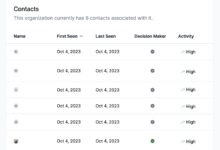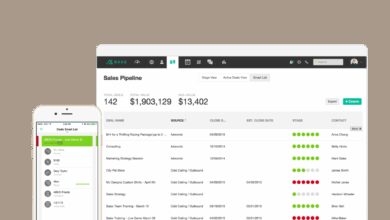Cloud Based WhatsApp CRM: 7 Powerful Benefits You Can’t Ignore
In today’s fast-paced digital world, businesses are turning to cloud based WhatsApp CRM solutions to supercharge customer engagement. Discover how this powerful tool is transforming communication, boosting sales, and streamlining support—all from the cloud.
What Is a Cloud Based WhatsApp CRM?

A cloud based WhatsApp CRM integrates the world’s most popular messaging app with customer relationship management software hosted on remote servers. This fusion allows businesses to manage customer interactions, automate responses, track sales pipelines, and analyze engagement—all without relying on local infrastructure.
How It Works: The Core Mechanism
Unlike traditional CRM systems that store data on-premise, a cloud based WhatsApp CRM operates via the internet. When a customer sends a message on WhatsApp, the system captures it in real time, logs it into the CRM, assigns it to the right agent, and can even trigger automated workflows like sending a catalog or booking a meeting.
- Data is stored securely on cloud servers, accessible from any device with internet access.
- Messages are encrypted end-to-end, maintaining compliance with global privacy standards.
- Integration with APIs allows seamless connection with other business tools like email, calendars, and e-commerce platforms.
“The cloud is not just a technology shift—it’s a business transformation engine.” — Satya Nadella, CEO of Microsoft
Key Components of a Cloud Based WhatsApp CRM
Understanding the architecture helps businesses choose the right solution. A typical cloud based WhatsApp CRM includes:
- WhatsApp Business API: The official gateway for enterprises to connect with customers at scale. It enables verified business profiles, message templates, and high-volume messaging.
- CRM Dashboard: A centralized interface where teams manage conversations, view customer history, assign tasks, and track performance metrics.
- Automation Engine: Allows businesses to set up auto-replies, chatbots, and workflow triggers based on user behavior or keywords.
- Analytics Module: Provides insights into response times, message delivery rates, customer satisfaction, and sales conversion.
Platforms like Twilio and MessageBird offer robust APIs that power many cloud based WhatsApp CRM systems, enabling developers and non-developers alike to build scalable communication solutions.
Why Businesses Are Switching to Cloud Based WhatsApp CRM
The shift from traditional customer service channels to cloud based WhatsApp CRM is accelerating. With over 2.7 billion users worldwide, WhatsApp has become the go-to platform for personal and professional communication. Businesses are leveraging this trend to stay relevant, responsive, and relationship-focused.
Ubiquity and High Engagement Rates
WhatsApp boasts one of the highest open and response rates among digital communication channels—often exceeding 90%. Compared to email (average open rate of 20-30%), this presents a massive opportunity for businesses to connect meaningfully with customers.
- Customers are already on WhatsApp—they don’t need to download new apps or remember logins.
- Messages are delivered instantly and appear directly in the user’s notification tray.
- Rich media support (images, PDFs, videos) enhances communication quality.
By integrating WhatsApp into a cloud based CRM, companies ensure every interaction is logged, tracked, and optimized—turning casual chats into valuable customer data.
Cost Efficiency and Scalability
Traditional call centers and on-premise CRM systems require significant investment in hardware, software licenses, and IT staff. A cloud based WhatsApp CRM eliminates these overheads.
- No need for physical servers or dedicated infrastructure.
- Pay-as-you-go pricing models make it affordable for startups and SMEs.
- Scaling up during peak seasons (e.g., holidays, product launches) is seamless—just add more users or message capacity.
For example, a small e-commerce store can start with a basic plan handling 1,000 messages per month and scale to enterprise-level plans processing millions—without changing vendors or migrating data.
Top 7 Benefits of Using a Cloud Based WhatsApp CRM
Adopting a cloud based WhatsApp CRM isn’t just about modernizing communication—it’s about unlocking strategic advantages that drive growth, improve efficiency, and enhance customer loyalty.
1. Real-Time Customer Support
Customers expect instant responses. A cloud based WhatsApp CRM enables 24/7 support through automated chatbots and live agent handoffs.
- Chatbots handle common queries (e.g., order status, return policies) instantly.
- Complex issues are escalated to human agents with full context already loaded.
- Reduced wait times lead to higher customer satisfaction (CSAT) scores.
According to a study by Forrester Research, businesses using real-time messaging see a 25% increase in first-contact resolution rates.
2. Centralized Customer Data Management
One of the biggest challenges in customer service is fragmented data. A cloud based WhatsApp CRM consolidates all interactions—calls, messages, emails, purchases—into a single customer profile.
- Every WhatsApp conversation is timestamped and linked to the customer’s history.
- Sales teams can view past interactions before making outreach calls.
- Marketing teams use behavioral data to personalize campaigns.
This 360-degree view empowers teams to deliver hyper-personalized experiences, increasing conversion rates and reducing churn.
3. Automated Workflows and Chatbots
Automation is a game-changer. Cloud based WhatsApp CRM platforms allow businesses to set up intelligent workflows that trigger actions based on user input.
- When a customer types “Track my order,” the bot fetches shipment details from the ERP system.
- If a lead sends “More info,” the CRM automatically sends a brochure and schedules a follow-up.
- Abandoned cart reminders can be sent via WhatsApp with a direct payment link.
These automations reduce manual workload by up to 60%, according to Gartner, freeing agents to focus on high-value tasks.
4. Enhanced Sales Conversion
Sales teams using a cloud based WhatsApp CRM report faster deal closures and higher conversion rates. Why? Because WhatsApp is a low-friction channel where trust builds quickly.
- Agents can send personalized product videos, catalogs, and quotes directly in chat.
- Quick responses prevent leads from going cold.
- Integration with CRM pipelines allows real-time updates on deal stages.
A case study by Zendesk showed that companies using WhatsApp for sales saw a 35% increase in lead-to-sale conversion within three months.
5. Global Reach with Local Presence
For businesses operating across borders, a cloud based WhatsApp CRM offers localization at scale.
- Use local phone numbers to appear as a domestic business in each country.
- Send messages in the customer’s preferred language using translation APIs.
- Respect time zones with scheduled messaging features.
This creates a personalized, trustworthy experience that boosts international engagement and compliance.
6. Secure and Compliant Communication
Data security is non-negotiable. A reputable cloud based WhatsApp CRM ensures end-to-end encryption, GDPR compliance, and secure authentication protocols.
- All messages are encrypted by WhatsApp’s protocol, protecting sensitive information.
- CRM providers undergo regular audits and certifications (e.g., ISO 27001, SOC 2).
- Role-based access control ensures only authorized personnel view customer data.
This level of security is especially critical for industries like finance, healthcare, and legal services.
7. Actionable Analytics and Reporting
Without data, decisions are guesswork. Cloud based WhatsApp CRM platforms come equipped with dashboards that track KPIs like response time, resolution rate, and customer sentiment.
- Identify bottlenecks in customer service workflows.
- Measure agent performance and provide targeted training.
- Optimize message templates based on engagement metrics.
These insights help businesses refine their strategies and continuously improve customer experience.
How to Choose the Right Cloud Based WhatsApp CRM for Your Business
With dozens of platforms claiming to offer the best cloud based WhatsApp CRM, selecting the right one requires careful evaluation. Here’s a step-by-step guide to help you make an informed decision.
Assess Your Business Needs
Start by defining your goals. Are you looking to improve customer support? Boost sales? Automate marketing? Different CRMs specialize in different areas.
- E-commerce businesses may prioritize catalog integration and payment links.
- Service-based companies might need appointment scheduling and feedback collection.
- Enterprises may require multi-language support and team collaboration tools.
Make a list of must-have features before comparing vendors.
Evaluate Integration Capabilities
A cloud based WhatsApp CRM should not exist in isolation. It must integrate seamlessly with your existing tech stack.
- Check compatibility with your current CRM (e.g., Salesforce, HubSpot).
- Ensure it connects with your e-commerce platform (Shopify, WooCommerce).
- Look for API access if you have custom software or want to build unique workflows.
Platforms like Salesforce and HubSpot offer native or third-party integrations with WhatsApp CRM providers, making data synchronization effortless.
Test User Experience and Support
The best technology fails if it’s hard to use. Request a demo or free trial to evaluate the interface.
- Is the dashboard intuitive for your team?
- Can agents quickly switch between chats and access customer history?
- Does the platform offer mobile apps for remote work?
Also, assess customer support quality. Look for 24/7 availability, multilingual support, and resources like knowledge bases and video tutorials.
Implementation Steps for a Cloud Based WhatsApp CRM
Deploying a cloud based WhatsApp CRM successfully requires planning, training, and continuous optimization. Follow this proven roadmap to ensure a smooth rollout.
Step 1: Get WhatsApp Business API Approved
Unlike the regular WhatsApp app, the Business API requires verification through a WhatsApp Business Solution Provider (BSP).
- Choose a BSP like Twilio, MessageBird, or 360dialog.
- Submit your business details, including legal name, website, and use case.
- Wait for Facebook (Meta) to review and approve your account—this can take 3–14 days.
Once approved, you’ll receive API credentials to connect your CRM.
Step 2: Configure Your CRM Settings
After API access, set up your cloud based WhatsApp CRM environment.
- Import existing customer data (ensure GDPR or CCPA compliance).
- Create message templates for common use cases (e.g., order confirmation, support response).
- Set up automation rules and chatbot flows.
- Define user roles and permissions for your team.
Most platforms offer drag-and-drop builders for creating workflows without coding.
Step 3: Train Your Team
Even the most advanced cloud based WhatsApp CRM will underperform if your team isn’t trained.
- Conduct hands-on sessions to familiarize agents with the dashboard.
- Teach best practices for tone, response time, and escalation procedures.
- Simulate real-world scenarios to build confidence.
Ongoing training ensures consistent service quality and reduces errors.
Step 4: Launch and Monitor Performance
Start with a pilot group—perhaps your support team or a single product line.
- Monitor key metrics: message delivery rate, average response time, customer satisfaction.
- Gather feedback from both customers and agents.
- Adjust workflows and templates based on insights.
Once optimized, scale the solution across departments and regions.
Common Challenges and How to Overcome Them
While cloud based WhatsApp CRM offers immense benefits, businesses often face hurdles during adoption. Being aware of these challenges helps you prepare and succeed.
Challenge 1: Message Template Approval Delays
WhatsApp requires all outbound messages (except replies within 24 hours) to use pre-approved templates. These can be rejected for vague language or promotional content.
- Solution: Follow WhatsApp’s template guidelines strictly—use clear, conversational language.
- Avoid salesy terms like “buy now” or “limited offer.” Instead, say “Your order is confirmed” or “Here’s the information you requested.”
- Work with your BSP to revise and resubmit templates quickly.
Challenge 2: Managing High Message Volumes
As engagement grows, so does the volume of messages. Without proper tools, teams can get overwhelmed.
- Solution: Use AI-powered chatbots to handle 70–80% of routine queries.
- Implement smart routing to assign messages to the most qualified agent.
- Set up canned responses for frequently asked questions.
Challenge 3: Ensuring Data Privacy Compliance
Storing customer data in a cloud based WhatsApp CRM must comply with regulations like GDPR, CCPA, or LGPD (Brazil).
- Solution: Choose a CRM provider with built-in compliance features like data encryption, consent management, and audit logs.
- Obtain explicit opt-in before sending marketing messages.
- Allow customers to unsubscribe easily and honor their requests promptly.
Future Trends in Cloud Based WhatsApp CRM
The landscape of customer communication is evolving rapidly. Here are the key trends shaping the future of cloud based WhatsApp CRM.
AI-Powered Conversational Intelligence
Next-gen CRMs will use advanced AI to understand customer intent, sentiment, and behavior in real time.
- AI will suggest optimal responses to agents during live chats.
- It will detect frustration in messages and escalate to supervisors automatically.
- Predictive analytics will anticipate customer needs before they ask.
Companies like IBM Watson are already integrating AI into CRM workflows, setting the stage for smarter interactions.
Richer Media and Interactive Messages
WhatsApp is expanding beyond text. Expect more support for interactive components like:
- Quick reply buttons (e.g., “Yes/No,” “Book Now”)
- List messages for product catalogs
- Payment integrations for in-chat transactions
These features will turn WhatsApp into a full-fledged commerce channel, reducing friction in the buyer journey.
Integration with Omnichannel Platforms
The future belongs to unified communication. Cloud based WhatsApp CRM will increasingly be part of omnichannel platforms that include SMS, email, social media, and voice.
- Customers can start a conversation on WhatsApp and continue on Instagram or email—without losing context.
- Agents manage all channels from a single inbox.
- Consistent branding and messaging across touchpoints.
This seamless experience will become the new standard for customer engagement.
Real-World Success Stories
Theoretical benefits are compelling, but real-world results are even more convincing. Here are two companies that transformed their operations with a cloud based WhatsApp CRM.
Case Study 1: E-Commerce Retailer in India
A fashion e-commerce brand was struggling with delayed order updates and high customer service volume. They implemented a cloud based WhatsApp CRM integrated with Shopify and their logistics provider.
- Automated order confirmation and shipping updates reduced support tickets by 50%.
- Agents used WhatsApp to send personalized style recommendations, increasing average order value by 22%.
- Customer satisfaction (CSAT) rose from 3.8 to 4.7 out of 5.
The ROI was evident within three months, with a 40% reduction in customer acquisition costs.
Case Study 2: Healthcare Provider in Brazil
A private clinic used a cloud based WhatsApp CRM to manage patient appointments, send reminders, and share test results securely.
- No-show rates dropped by 35% due to automated appointment confirmations.
- Patients could ask non-urgent medical questions via chat, reducing phone call load.
- All communications were encrypted and compliant with local health data laws.
The clinic expanded its patient base by 20% without hiring additional staff.
What is a cloud based WhatsApp CRM?
A cloud based WhatsApp CRM is a customer relationship management system that integrates with WhatsApp via the cloud, allowing businesses to manage conversations, automate responses, and track customer interactions from a centralized platform accessible over the internet.
Is WhatsApp CRM secure for business use?
Yes, when implemented correctly. WhatsApp uses end-to-end encryption, and reputable cloud based CRM providers comply with data protection regulations like GDPR and HIPAA. Always choose certified platforms and follow best practices for data access and consent.
Can I automate messages on WhatsApp for marketing?
You can send marketing messages, but only if the customer has opted in. All promotional messages must use pre-approved templates via the WhatsApp Business API. Avoid spammy content to prevent account suspension.
How much does a cloud based WhatsApp CRM cost?
Costs vary by provider and usage. Some charge per message (e.g., $0.005–$0.01), while others offer monthly subscriptions. Entry-level plans start at around $20/month, with enterprise solutions costing thousands based on volume and features.
Do I need technical skills to set up a cloud based WhatsApp CRM?
Not necessarily. Many platforms offer no-code interfaces, drag-and-drop workflow builders, and guided setup wizards. However, integrating with complex systems may require developer support or IT assistance.
Adopting a cloud based WhatsApp CRM is no longer a luxury—it’s a strategic necessity for businesses aiming to deliver fast, personalized, and scalable customer experiences. From real-time support and automation to global reach and deep analytics, the benefits are transformative. By choosing the right platform, implementing it effectively, and staying ahead of trends, companies can build stronger relationships, drive sales, and future-proof their customer engagement strategy. The future of business communication is here, and it’s running on WhatsApp in the cloud.
Further Reading:








